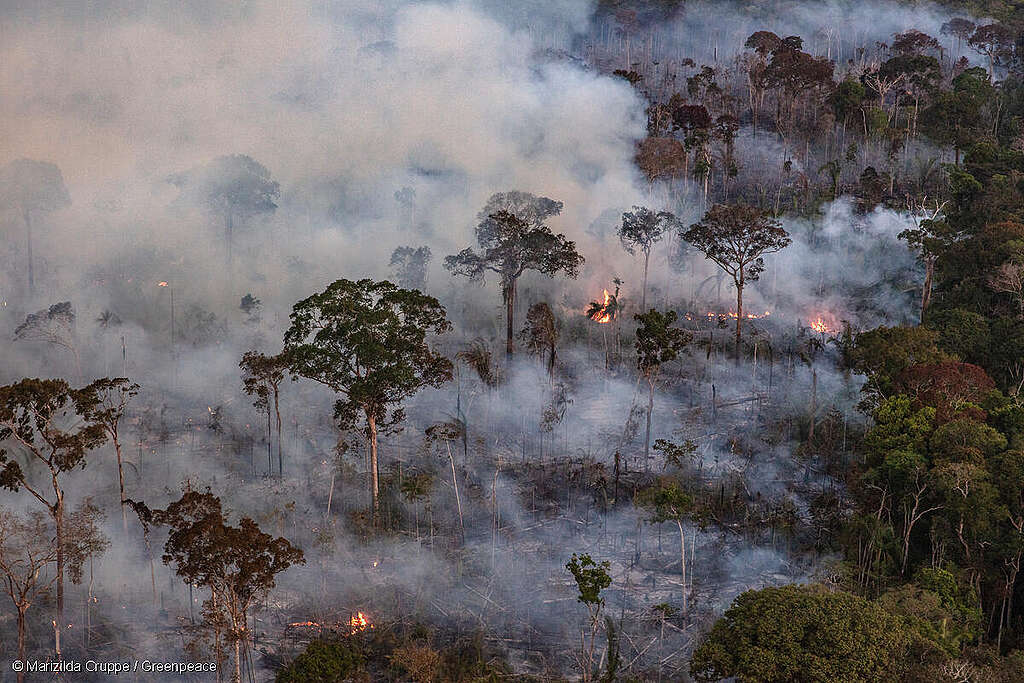WHEN parts of Brazil’s agribusiness sector resisted attending COP30—the United Nations climate summit set for November in the Amazon city of Belém—Embrapa (the Brazilian Agricultural Research Corporation), a federal entity, offered a solution: the Agrizone, a dedicated space funded by millions in sponsorship from major corporations and trade groups.
During the eleven days of the conference in Brazil’s Pará state, Agrizone will be active less than two kilometers from the official UN pavilion. In addition to an exhibition fair, it will host climate debate forums, serve as a business hub, and act as a temporary headquarters for the Ministry of Agriculture, where Minister Carlos Fávaro will work.
“The agricultural sector was highly resistant, unsure whether COP would offer an opportunity or criticism,” explains Ana Euler, Embrapa’s executive director of innovation and business. Data from Seeg—the System for Estimating Emissions and Removals of Greenhouse Gases, maintained by the Climate Observatory—shows agriculture is the leading driver of deforestation and greenhouse gas emissions in Brazil.
ASSINE NOSSA NEWSLETTER
The Agrizone is part of a deliberate strategy by industry to challenge the narrative —and the blame—on the climate crisis. “This is the time to be proactive, because if we aren’t, the official line, along with government agencies, will take over and shape the COP discussion,” Senator Zequinha Marinho (PL-PA) said at a Confederation of Agriculture and Livestock of Brazil (CNA) event on Sept. 24.
The CNA is the Agrizone’s “master” sponsor, providing US$460,000 (R$2.5 million). Nestlé and Bayer are among its “diamond” backers, each contributing US$184,000 (R$1 million) Their funding supports everything from company-led events to the reservation of exclusive meeting rooms.
In a recent Folha de S. Paulo article, the CNA called the Agrizone a showcase for the Brazilian rural sector to promote its self-styled identity as an “agri-environmental powerhouse.” The confederation champions “tropical agriculture”—such as integrated crop-livestock-forest systems—as a path to climate solutions.

CNA will also have its own stand inside the official COP30 space and plans to arrange Amazon farm tours to showcase what it calls sustainable practices to diplomats, journalists and lawmakers.
Critics argue this narrative is misleading. While touting “green” technologies, these corporations and associations are linked to expanding deforestation, heavy pesticide use, and methane emissions from livestock. “Many who present themselves as part of the solution are the very actors fueling structural problems,” says Marília Albiero of ACT Promoção da Saúde, a health NGO.
For years, the CNA has advocated looser environmental rules and repeatedly opposed the Climate Plan’s agriculture proposals, a federal blueprint setting targets for cutting deforestation and greenhouse gas emissions.
Claudio Angelo, international policy coordinator at the Climate Observatory and on his way to his fifteenth COP, says that while agribusiness is entitled to participate, there is a risk the debate will be dominated by industry interests.
“What cannot happen is for the Agrizone to become a platform where the sector claims it doesn’t drive deforestation or only needs funding for adaptation—arguing that rural producers are victims of global warming they didn’t cause. That’s simply not true: agriculture contributes to global warming,” he says.
Agrizone comes after ‘Agribusiness COP’ was scrapped
Conceived during COP29 in Azerbaijan, Agrizone gained traction when the planned “Agribusiness COP“—to be held in Marabá, Pará, 500 kilometers from Belém, alongside the UN summit—was scrapped after pressure from the state government. Framed as a response to what agribusiness described as unfair targeting, the event was canceled.
Typically, representatives from agribusiness and other productive sectors organize their own events outside the official UN zones—the blue zone for negotiators, and the green zone for civil society and business. In Belém, for the first time, a public institution—Embrapa—will lead a venue for the private sector: Agrizone.

Anna Cárcamo, a climate policy specialist at Greenpeace, believes spaces like Agrizone tend to influence negotiations in subtle ways. “On their own, such spaces do not decide COP outcomes, but lobbying from major economic sectors has serious weight,” she says. She urges the UN and COP organizers to establish clearer rules to prevent conflicts of interest and undue influence by stakeholders with commercial interests in the talks.
The Ministry of Agriculture denied any conflict of interest in a statement, saying Embrapa initiatives like Agrizone are seen with “naturalness and responsibility.” The ministry notes that Brazilian laws permit Embrapa to partner with private organizations and receive project funding from the private sector.
“Such collaboration is standard in science, technology and innovation, as it extends research and advances actions in the public interest without compromising Embrapa’s mission,” the statement reads. “In fact, these partnerships strengthen Embrapa’s capacity to share knowledge and help bridge society, business and innovative technologies that support sustainability and competitiveness in Brazilian agriculture.” Read the ministry’s full response here.
The Ministry of the Environment declined to comment, calling it a “private event.” Neither the CNA nor the COP presidency responded to interview requests.
Embrapa-private sector partnerships adhere to public rules, director says
Embrapa’s growing ties with private enterprise predate COP30. The federal agribusiness research agency and Nestlé, for example, maintain a partnership to create low-carbon dairy, in doing so reducing emissions and develop a public monitoring system. Nestlé has invested about US$368,000 (R$2 million) in the initiative, slated to run through 2026, according to Embrapa.
Bayer, together with six other companies, finances the Low Carbon Soy program, coordinated by Embrapa Soja, with an investment of US$2.74 million (R$14.7 million). The company also maintains three additional partnerships focused on crop carbon footprints and weed management, with combined funding of nearly US$2.21 million (R$12 million).
When asked about possible conflicts of interest, Euler says these agreements comply with public regulations. “No company can just sponsor Embrapa or Agrizone. Interested firms must show they meet strict requirements in our sponsorship calls.” With Agrizone, organizations must prove alignment with the Climate Convention and a commitment to decarbonization, according to the executive director.

“Today, companies want to show the market—backed by scientific verification—what their average emissions are and how their decarbonization plans can be substantiated. Embrapa is a public institution with a distinguished reputation, and these firms support research by our scientists,” Euler explains.
Euler rejects accusations that the partnerships are mere marketing. “We don’t just publish reports; we report findings based on science, publishing in top-tier A1-rated scientific journals.”
Nonetheless, critics have raised red flags about growing private sector dependence. In 2023, the Federal Court of Auditors cited issues with oversight and transparency in projects funded by business interests. From 2018 to 2023, Embrapa received R$145 million (approximately US$26.7 million) from such partnerships, as previously reported by Repórter Brasil.
Sources cited at the time voiced concern that Embrapa could be tempted to subordinate food security—one of the agency’s core mission—to the demands of big business.
Rising perceptions that Embrapa closely mirrors the agribusiness lobby have prompted new criticism. A recent Intercept Brasil report revealed that a research center affiliated with the state-run Embrapa is promoting the GWP* standard—a metric for methane’s climate impact that the UN’s Intergovernmental Panel on Climate Change (IPCC) has rejected.
Experts describe GWP* as an “accounting trick”—minimizing methane’s role and allowing companies to claim carbon neutrality without real emissions cuts or addressing long-term issues like pasture-driven deforestation. Major meat processors like JBS and Burger King fund research centers advocating for this metric.
Euler denies Embrapa supports any measure contrary to the IPCC: “We’re saying robust scientific debate is extremely relevant, but Embrapa stands firmly behind IPCC standards,” she emphasizes.
Leia também


